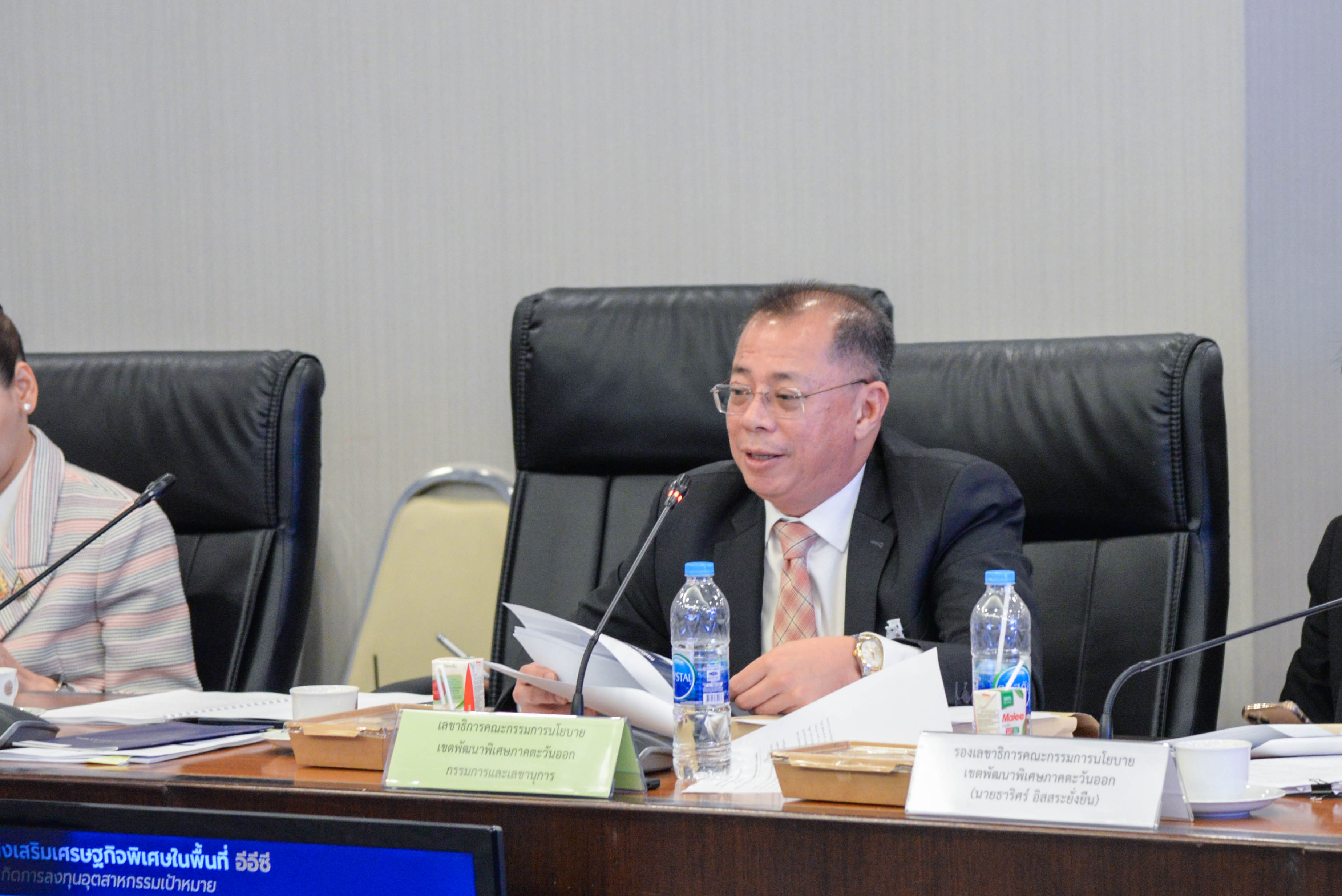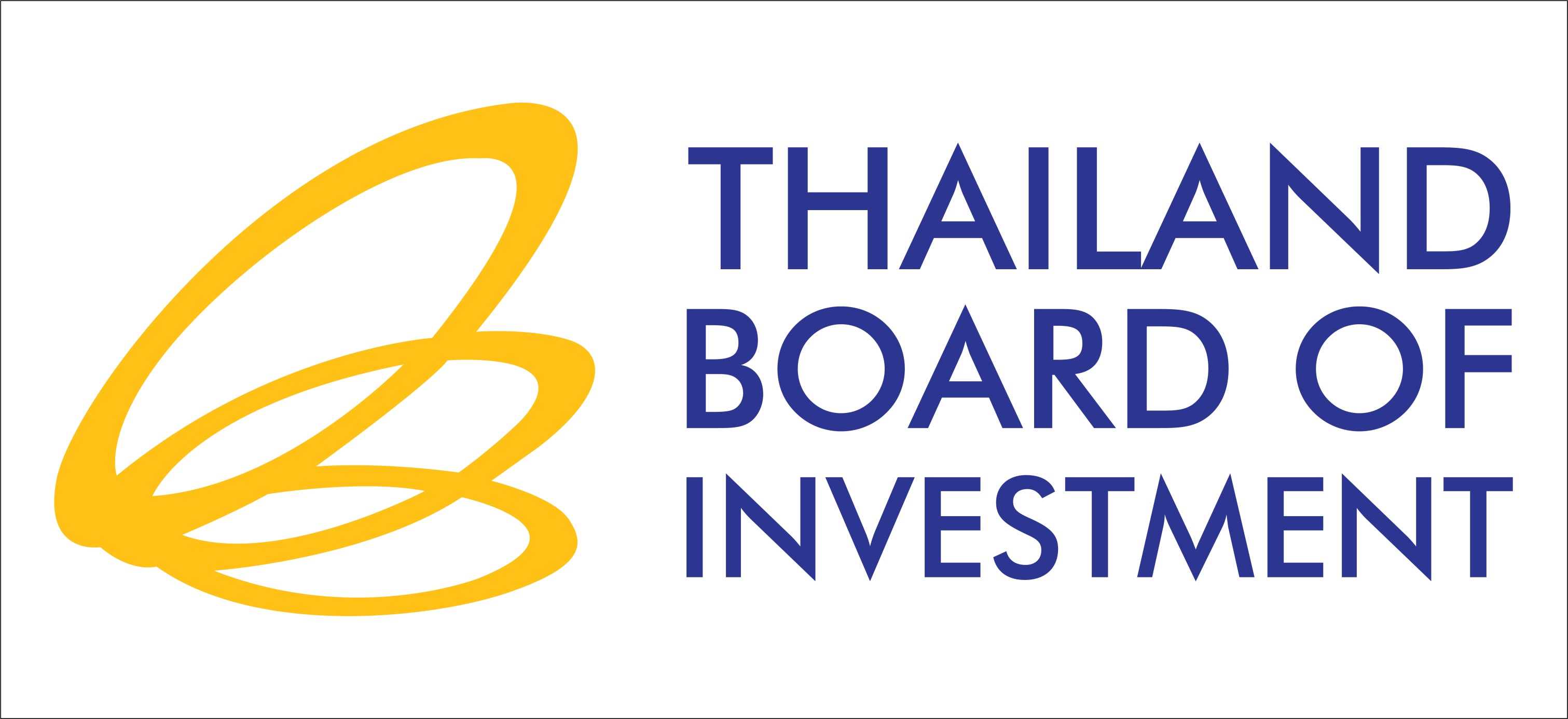Investment/EEC
Investment/EEC
Chatrudee Theparat
Eastern Economic Corridor Policy Committee approved five principles to amend contract of the high speed rail connecting three airports, based on the benefits of the private and government sectors.
The announcement was made following the 4th meeting of the Eastern Economic Corridor Policy Committee (EEC Policy Committee) last Friday, chaired by Deputy Prime Minister and Minister of Fnance Pichai Chunhavanich, while Chula Sukmanop, secretary-general of the Eastern Economic Corridor Office of Thailand (EECO), served as the secretary.

Pichai Chunhavanich
The EEC Policy Committee approved the principles to resolve the disputed issues of the high-speed rail project connecting the three airports by amending the joint investment contract to ensure that the project can move ahead. This will be based on principles that the government does not lose any benefits and the private sector does not gain undue benefits. The proposed contract amendments will be submitted to the cabinet for consideration on five key points as followed:
1) The payment method for public investment cost (Public Investment Cost: PIC) has changed. Previously, when the private sector operated the high-speed train, the government would pay a total of 149,650 million baht in installments based on the progress of work verified by the State Railway of Thailand (SRT), with a maximum amount of 120,000 million baht. The private sector must provide additional guarantees beyond the original contract, totaling 160,000 million baht, to ensure that the high-speed train is constructed and operational within five years. Furthermore, ownership of the constructed assets will gradually transfer to the government (SRT) according to
the payment schedule.
2) The payment schedule for the investment rights in the Airport Rail Link (ARL) project requires the private sector to pay a total of 10,671.09 million baht in seven equal annual installments. The first installment must be paid on the date of signing the contract amendment. Additionally, the private sector must provide a guarantee letter issued by a bank, valued at the total amount of the ARL investment rights, including other financial costs for which the State Railway of Thailand (SRT) is responsible.
3) Establish additional revenue-sharing provisions in the event that the project’s loan interest rates significantly decrease in the future, resulting in the private sector achieving a return on investment (IRR) exceeding 5.52%. The State Railway of Thailand (SRT) has the right to request that the private sector pay an increased share of the benefits,
the amount of which will be agreed upon later.
4) The exemption from the conditions for issuing the Notice to Proceed (NTP) allows the contracting parties to create a memorandum of agreement to waive the NTP conditions that have not yet been fulfilled. This enables the State Railway of Thailand (SRT) to issue the NTP immediately upon signing the amended contract in accordance with these principles.
5) To prevent future issues that may arise from events significantly impacting the project's financial status, the contractual clauses regarding force majeure and grace periods will be revised to align with the joint investment agreements between the government and the private sector in other projects.

Chula Sukmanop
The EEC Policy Committee meeting decided that the EEC Office should present the principles for addressing the project's issues regarding the five mentioned points to the cabinet for approval to review its resolution from March 27, 2018. It also instructed the contracting parties to jointly negotiate the draft amendment contract and submit it to the project oversight committee for consideration.
This will then be forwarded to the Office of the Attorney General for review before being presented to the EEC and the cabinet for final approval of the contract amendment, prior to the contracting parties signing the amended contract.
The committee also approved the adjustment of the operational approach for the U-Tapao Maintenance, Repair and Overhaul (MRO) project. Since Thai Airways International Plc has ceased to be a state enterprise as of 2020, it can no longer act as the project owner for the MRO facility at U-Tapao Airport. The EEC Office believes that this project is essential for the development of U-Tapao Airport and for enhancing Thailand's aircraft maintenance capabilities, as well as for improving the skills of aviation technicians to meet international standards. Therefore, it is necessary to continue the project in a manner suitable for the changing circumstances.
The EEC Committee has resolved to approve the modification of the project's operational approach by canceling its status as a joint investment project, as previously approved by the Cabinet on October 30, 2018. The EEC Office will proceed to find a tenant for the state-owned land in the Eastern Airport City Promotion Zone (EECa) to conduct aircraft maintenance activities in accordance with Section 53 of the Eastern Economic Corridor Act B.E. 2561 and the regulations of the Eastern Economic Corridor Policy Committee regarding the criteria, methods, and conditions for leasing state-owned land designated as a special economic promotion area in 2019. The EEC Office will present the EEC Committee's resolution to the Cabinet for acknowledgment and will consider canceling the Cabinet's resolution from October 30, 2018, in the relevant aspects.
The committee was acknowledged the progress of the development of the EEC, particularly regarding the development of EEC promotional zones, infrastructure projects in four major transportation initiatives, and efforts to attract investment in five special target industry clusters: healthcare and medical, digital, next-generation automotive, BCG economy, and services. From January 2023 to September 2024, the EEC Office has engaged with 139 investors, with 35 investors expressing interest in the five clusters and submitting Letters of Intent (LOIs) for a total of 36 projects.
Twelve projects have submitted proposals to request benefits under EEC law, with a total investment value of approximately 135 billion baht.
14 October 2024
Viewed 293 time
 EN
EN 




